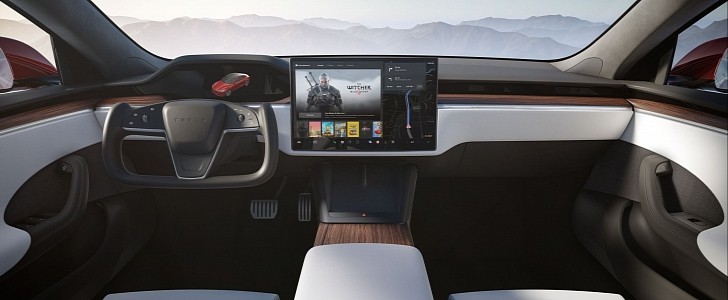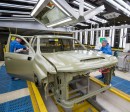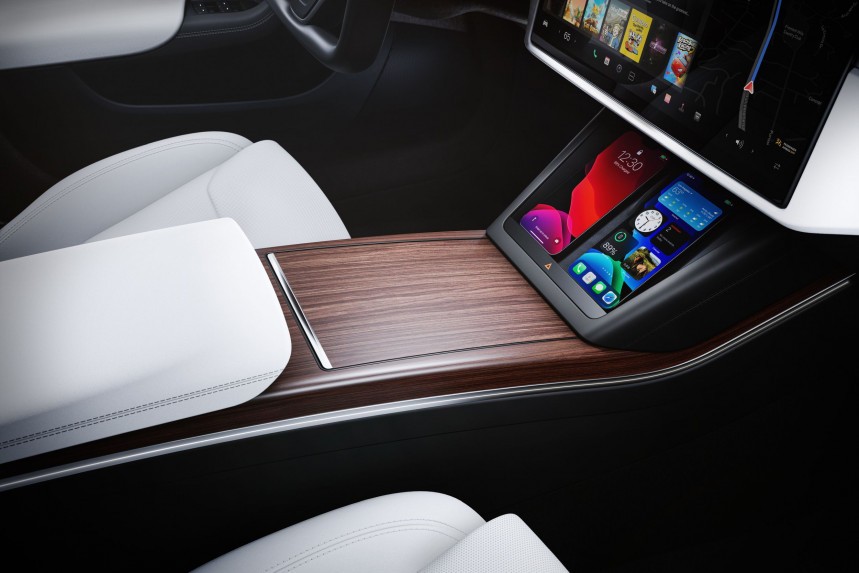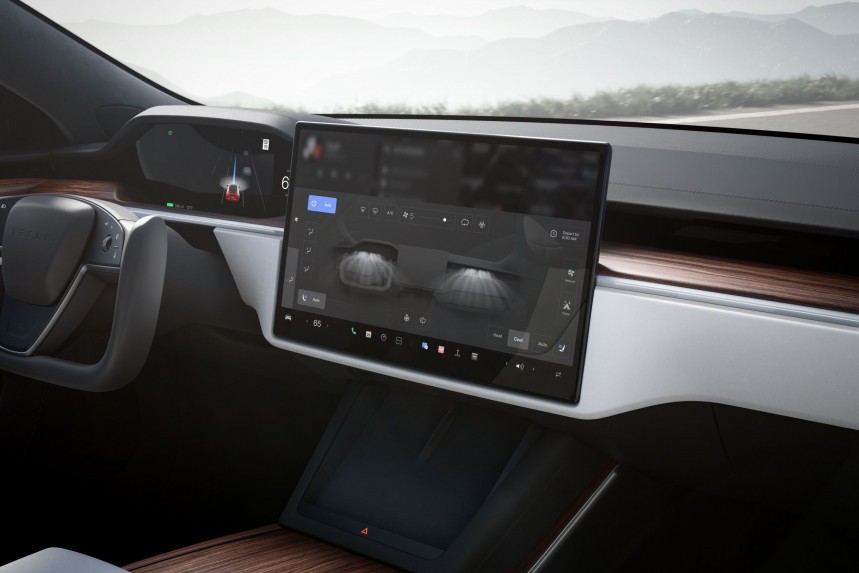It’s pretty clear already that the chip shortage is here to stay, and unfortunately, nobody knows for sure when exactly it could be over.
Carmakers have been struggling with the lack of semiconductors for over 12 months already, and while some already see the light of the tunnel because they’re trying to build up stocks, the consensus is that we’re slowly approaching another wave of the chip crisis.
In other words, it’s all just a matter of time until the shortage hits automakers once again, and needless to say, most of them are turning to all kinds of solutions in an attempt to avoid being caught unguarded.
Tesla is one of the biggest names not only impacted by the lack of chips but also embracing an approach that eventually feels like a huge pain in the neck for customers.
The company has reportedly started shipping cars without USB-C ports, obviously because it doesn’t have enough chips to power this feature. Tesla hasn’t publicly announced this approach, so buyers end up finding out the whole thing when they receive their cars.
The USB-C ports have been removed from both the center console and the rear seats, and in some cases, not even wireless charging is available.
And while the carmaker isn’t saying a single thing about this, it looks like it does plan to fit these vehicles with the missing USB-C ports. It’d happen throughout December, some say, though right now, specific timing details are available.
In case you’re wondering why Tesla needed to drop USB-C ports on its cars, the answer is as simple as it could be. The company is probably trying to prioritize the usage of chips, and because its current semiconductor inventory is very tight, shipping cars without certain systems is the only way to go. Unless Tesla is ready to temporarily suspend the production, that is, though it’s pretty clear the company wants to avoid such a painful solution.
The same goes for General Motors. Earlier this year, the company decided to ship some vehicles without start-stop systems, once again in an attempt to reduce the number of chips used on them.
In this case, however, GM wouldn’t be able to install the missing systems at a later time, so all the vehicles that were shipped without start-stop would lack such capabilities forever. The only thing the company did was reduce the price of the new cars by $50.
Obviously, this didn’t mean GM’s problems were gone. Not at all. The American car giant temporarily suspended the production at most of its North American plants, and in some cases, select factories ended up being shut down for months.
In early November, however, General Motors resumed operations at all facilities, though it too expects another chip shortage wave to be encountered in early 2022.
And now, GM is removing heated seats from plenty of models manufactured starting November 15, including Chevrolet Colorado, Blazer, Equinox, and certain Silverado models. GMC Canyon and GMC Terrain are also reportedly affected, with buyers to be offered credit between $150 and $500.
And of course, Tesla and GM aren’t the only companies struggling with the chip shortage and shipping cars without certain systems missing.
BMW also recently announced that it’d be delivering certain models without touchscreens, giving customers a $500 credit on each car’s MSRP. The chip crisis is obviously to blame, though in this case, buyers are only losing the touch input, with everything else to continue to be available on new BMWs.
There’s no doubt the list of carmakers turning to such approaches in an attempt to reduce the disruption of the semiconductor nightmare will continue to grow.
Unfortunately, more and more industry experts believe the chip problems would continue for at least one more year. So if you were planning to buy a new car by 2023, not only there’s a big chance you’ll receive it with a huge delay, but it could also lack certain systems that fell victim to the chip shortage.
In other words, it’s all just a matter of time until the shortage hits automakers once again, and needless to say, most of them are turning to all kinds of solutions in an attempt to avoid being caught unguarded.
Tesla is one of the biggest names not only impacted by the lack of chips but also embracing an approach that eventually feels like a huge pain in the neck for customers.
The USB-C ports have been removed from both the center console and the rear seats, and in some cases, not even wireless charging is available.
And while the carmaker isn’t saying a single thing about this, it looks like it does plan to fit these vehicles with the missing USB-C ports. It’d happen throughout December, some say, though right now, specific timing details are available.
In case you’re wondering why Tesla needed to drop USB-C ports on its cars, the answer is as simple as it could be. The company is probably trying to prioritize the usage of chips, and because its current semiconductor inventory is very tight, shipping cars without certain systems is the only way to go. Unless Tesla is ready to temporarily suspend the production, that is, though it’s pretty clear the company wants to avoid such a painful solution.
In this case, however, GM wouldn’t be able to install the missing systems at a later time, so all the vehicles that were shipped without start-stop would lack such capabilities forever. The only thing the company did was reduce the price of the new cars by $50.
Obviously, this didn’t mean GM’s problems were gone. Not at all. The American car giant temporarily suspended the production at most of its North American plants, and in some cases, select factories ended up being shut down for months.
In early November, however, General Motors resumed operations at all facilities, though it too expects another chip shortage wave to be encountered in early 2022.
And now, GM is removing heated seats from plenty of models manufactured starting November 15, including Chevrolet Colorado, Blazer, Equinox, and certain Silverado models. GMC Canyon and GMC Terrain are also reportedly affected, with buyers to be offered credit between $150 and $500.
BMW also recently announced that it’d be delivering certain models without touchscreens, giving customers a $500 credit on each car’s MSRP. The chip crisis is obviously to blame, though in this case, buyers are only losing the touch input, with everything else to continue to be available on new BMWs.
There’s no doubt the list of carmakers turning to such approaches in an attempt to reduce the disruption of the semiconductor nightmare will continue to grow.
Unfortunately, more and more industry experts believe the chip problems would continue for at least one more year. So if you were planning to buy a new car by 2023, not only there’s a big chance you’ll receive it with a huge delay, but it could also lack certain systems that fell victim to the chip shortage.











